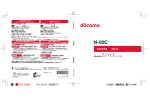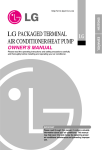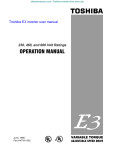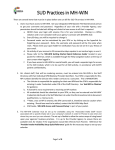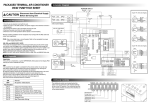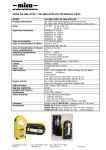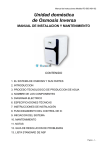Download Wayne County Community Mental Health Collaborative
Transcript
Wayne County Community Mental Health Collaborative- Issues List General Concerns: 1. Providers often do not know when clients have transitioned into dual eligible, given very little notice. Response: a. Providers should check eligibility at the beginning of every encounter with a consumer. The eligibility check will provide you the most up to date insurance status. b. Due to changes in Medicaid or Medicare eligibility, consumers may receive retroactive eligibility for insurance coverage. This is true for Medicaid eligibility as well as MI Health Link. Providers should check eligibility when the claim is entered, while less likely, there can be the occasion that a consumer’s insurance coverage status has changed from the date of service. 2. Providers are concerned about what will happen when the new approved ICO’s are announced by the state. Response: a. The Integrated Care Organizations (ICOs) for the MI Health Link Program have been determined. For Region 7 they include: Aetna Better Health, AmeriHealth of Michigan, Centene/Fidelis, HAP Midwest Health Plan and Molina Healthcare. b. There have been new Medicaid Health Plans (MHPs) selected for the prosperity region which includes Wayne county. The MHPs do not have an impact on the MI Health Link Program. Communication Concerns 1. There continues to be communication issues between the Providers, the Authority and the State. • By way of example, • The website has not been updated and the FAQ has been stagnant; • It doesn't seem that information is passed down timely from either the State or the Authority; • Provider meetings are few and far between. Response: a. DWMHA staff will update the website with information from 11/23/15 Provider Roundtable Meeting. b. MI Health Link Roundtable Provider Meeting will be held bimonthly 3rd Monday of that scheduled month, January 25th 2015 next meeting. 2. It is difficult to know who to ask for help. Response: a. Please submit questions to the following: b. www.dwmha.com ...Provider Info…MI Health Link… question section… Questions and Answers sent through this medium are most easily included in the FAQ document, for the benefit of all. c. [email protected] d. [email protected] e. [email protected] v.dwmhaproviderroundtable 11/24/2015 1 Wayne County Community Mental Health Collaborative- Issues List 3. Slow or no response on many issues sent to the Authority. Response: a. Acknowledgement within 24 hours. With estimated time for response. DWMHA staff may have to do research on the question. DWMHA staff may have to develop additional processes to address the issue/question. 4. No one person to go to for questions, and often feel passed around, still with no resolution in the end. Response: a. Please cc or email, Audrey E. Smith, [email protected], and has always been available to address issues 5. Website: Authorization screen is not user-friendly. Response: a. Refer to the Help tab within MH WIN select Dual Eligible (MI Health Link) Authorizations Request User Manual Level I Referral/Access/Appointment Issues/Level II 1. One of our biggest issues, outside of IT and the authorization requests, auths, and billing/claims is the scheduling process. There are a number of providers that are finding a disconnect between when the Level I is completed and added to the MHWIN Scheduler. Response: a. When ACCESS receives a level 1 referral, Access Staff try to identify existing provider relationship based on encounter data and what consumer says. Access is attempting to get the MI Health Link enrollee scheduled for a Level II Assessment as early as possible. b. Kelly Quinn ask that providers open/dedicate open slots on your calendar, open section for existing consumers, whatever is easiest for your agency. Providers are to review the schedule regularly to identify the Level I referrals put on the available slots. Providers may need to adjust the appointment time based on organization practices. c. ACCESS will commit when notified to place in the note section if member is existing, and any other important information. d. Providers are reading the content of the Level I Assessment. 2. Everyday Providers check the MHWIN MI Health Link list to see the consumers who had been added, but we have a couple of days to complete the Level II, or they fall behind. We are not sure where that issue stems from, but then the Providers receive letters saying they are delinquent. Response: a. Providers should document within the Note Section of the referral request when they receive a Level 2 request with little time remaining. Documented attempts – b. Document within the Note Section, 3 times of outreach include time, date and outcome, ICO would like 5 times of outreach, at the final attempt of outreach effort a call back to ICO Care Coordinator must be done for reporting unable to reach enrollees. c. This could occur for many reasons; member requested such appointment, difficulty in reaching member to schedule, etc. d. The reminder emails that are sent to providers are status updates for providers. DWMHA has Care Coordinators assigned to each provider to give technical assistance in working v.dwmhaproviderroundtable 11/24/2015 2 Wayne County Community Mental Health Collaborative- Issues List through the Level 2 Assessment queue for Providers. We are all working in partnership to fulfill the expectations of the contract for MI Health Link. 3. The MI Health Link list in MHWIN only shows consumers who had a Level I completed, not the clients who are new to MI Health Link without a Level I, but the same expectations of requesting authorizations apply. Response: a. Correct. The MHWIN MI Health Link module provides a the mechanism to address the Level I and Level II Assessment exchange, through the “program route” b. MI Health Link enrollees may present at a Provider for service and not have received a Level I Assessment from the ICO yet. This is the “service route” MI Health Link is their insurance. Providers need to check the insurance status of a consumer at every encounter to know what insurance coverage the consumer on that date of service. Deliver the necessary service. If the consumer is MI Health Link, authorizations are required. Service may be provided even if the Level I Assessment has not be completed. c. DWMHA Staff are developing a process to assist ICOs with getting the Level I Assessment completed. 4. This is confusing. We are still am not sure about the differences between the consumers who have received a Level I and those who have not as far as what is needed/required in the system. Response: a. Program Route and the Service Route. Program Route is the request for level 2 assessments to be sent to ICO within 14 days of determination of Behavioral Health or SUD need. Service Route – members that receive behavioral health or SUD services within your organizations that have active cases. b. DWMHA Staff are developing a process to assist ICOs with getting the Level I Assessment completed. c. Per the Provider Education Meeting on 6/12/15. See attached. 5. The majority of those clients on the list are already open with select providers so they are scheduled with a Level II. The provider has to go through the list and pull out those consumers who are open and then contact the treatment team so as not to fill up our intake schedule. It seems that there could be an easier process with open cases. Response: a. This is a provider process. DWMHA Staff would be happy to facilitate a process improvement discussion on how address consumers who seek services who may be existing, returning or new consumers. 6. Confusion between MH Win system and MI Health Link calendars. 7-15 days is shared with Pioneer. So if it takes longer at Pioneer, agency is held accountable. Response: a. When ACCESS receives a level 1 referral, Access Staff try to identify existing provider relationship based on encounter data and what consumer says. Access is attempting to get the MI Health Link enrollee scheduled for a Level II Assessment as early as possible. b. Kelly Quinn ask that providers open/dedicate open slots on your calendar, open section for existing consumers, whatever is easiest for your agency. Providers are to review the v.dwmhaproviderroundtable 11/24/2015 3 Wayne County Community Mental Health Collaborative- Issues List schedule regularly to identify the Level I referrals put on the available slots. Providers may need to adjust the appointment time based on organization practices. c. ACCESS will commit when notified to place in the note section if member is existing, and any other important information. 7. When people are in the queue wrongly, we cannot get them off. Then Authority wants regular status reports on that person. Response: a. Documented attempts – Documented within the Note Section, 3 times, ICO would like 5times, with a call back to ICO reporting unable to reach. b. Document types – Quality checks, please make sure providers do some quality checks – c. Notes section in Level 2 queue can be used to document information about the attempts to contact the enrollee and/or status of the enrollee. d. DWMHA has to report status of all Level II Assessments, by disability designation and completion with 15 days of Level I Referral to each ICO. Authorization Concerns 1. Authorizations by Providers were not to be a part of this system, and were added 2 months into the implementation of MI Health Link. As Providers, we question the need for authorizations for every service and would like to know: What triggered the decision to move the process to the provider level? Response: a. In the early part of MI Health Link program develop it was discussed that the service authorization process would be more exception authorization, the required authorization for every service. During the implementation phase, it was determined that service authorizations needed to be require for the MWIN system to carry out the authorization and claim process. b. Feedback is acknowledged that the MCPNs do not require such a laborious authorization process. c. DWMHA Staff will put this issue back on the table, as priority, for consideration of improvement. 2. HPI started to request authorizations only to see HPI did not have the ability to request outpatient, just inpatient. It took almost 3 weeks to rectify that situation and now all of the requests are still pending. Response: a. UM is working on issue 3. Authorizations are not done in the MCPN networks, and that system works much more smoothly. The authorization process has added a tremendous amount of work to our agencies’ workloads, to the point that we are hiring or considering hiring additional staff to focus only on this process, at a substantial cost to our member organizations. Rates paid for services are not adequate for coverage of staff focused on the authorization process. Response: a. In the early part of MI Health Link program develop it was discussed that the service authorization process would be more exception authorization, the required authorization for every service. During the implementation phase, it was determined that service v.dwmhaproviderroundtable 11/24/2015 4 Wayne County Community Mental Health Collaborative- Issues List authorizations needed to be require for the MWIN system to carry out the authorization and claim process. b. Feedback is acknowledged that the MCPNs do not require such a laborious authorization process. c. DWMHA Staff will put this issue back on the table, as priority, for consideration of improvement. 4. Psychiatric evaluations: allowed annually yet authorized quarterly is difficult as consumers are not consistent in following appointments scheduled. Staff cannot reliably determine in which quarter the evaluation should occur. Recommend that the authorization be valid for one year. Response: a. DWMHA has made decision to make authorizations valid for one calendar year. The MHWIN system for authorizations is set up on the calendar year. b. Awaiting MHWIN system implementation based on the final updates to the Utilization Services Grid. 5. Cannot submit extended authorizations (for six months or a year); must be submitted every quarter even if we know client will require ongoing treatment. Authorizations time line has been extended for most services. Authorizations are based on a calendar year this is not a rolling calendar therefore all authorizations will need. Response: a. DWMHA has made decision to make authorizations valid for one calendar year. The MHWIN system for authorizations is set up on the calendar year. b. Awaiting MHWIN system implementation based on the final updates to the Utilization Services Grid. 6. Authorizations need to be able to cross quarterly times; i.e. when clients come into services at the end of a quarter (say two weeks before the end) then you can only authorize for a two week period of services and then go back in and have to reauthorize for the next quarter. Response: a. DWMHA has made decision to make authorizations valid for one calendar year. The MHWIN system for authorizations is set up on the calendar year. b. Awaiting MHWIN system implementation based on the final updates to the Utilization Services Grid. 7. When authorizations are processed by the UM Department, the dates don’t coincide which means we have to continually email The Authority to fix or void the whole authorization and re-process. Response: a. Please send consumer ID, Authorization # with scenario to DWMHA.com website question. Questions and Answers sent through this medium are most easily included in the FAQ document, for the benefit of all. 8. Authorizations are often left in pending but it is not clear why. Providers do not receive any email notifications for pending or authorizations that have missing or wrong information. Response: v.dwmhaproviderroundtable 11/24/2015 5 Wayne County Community Mental Health Collaborative- Issues List a. The queue is cleared everyday. Turn around time is within 24 hours. UM Staff will often put a note to the providers. An email is sent. Need to make sure the email is in the system and up to date. Email is going to the person who entered the authorization. When approved authorization they get an email. Please send consumer ID, Authorization # with scenario to DWMHA.com website question. 9. “Awaiting demographic” shows even when the demographic has been submitted and it shows it was submitted and signed. Also will state “awaiting authorization” even when authorization is there. When authorization tab is clicked it shows an approved authorization but the provider has no idea if it is approved. Response: a. DWMHA Staff will look into this situation. Ms. Carolyn Metz will provide additional information. There was bug. This system glitch has been corrected. 10. When authorizations are submitted for recognized services, the authorizations are immediately approved but can sometimes be withdrawn when sent through for review. There is no notification to the submitting clinician that this has been done and no way for the provider to know. Response: a. Once the authorization is approved, it is approved. There can be other scenarios. Please send specific examples with consumer ID, Authorization # with scenario to DWMHA.com website question. 11. The process for the 2-page pre-authorization justification form submitted to PIHP for authorization (96101) is not clear. There has not been good communication on this authorization process. Response: a. DWMHA Utilization Management Staff will look into this situation. 12. The Provider’s faxes, sent for authorization review by the PIHP, have not consistently been received and claims are thus rejected. Response: a. DWMHA Utilization Management Staff will look into this situation. Code issues: 1. There is a difference in what MDHHS shows as covered services on MI Health Link and what DWMHA allows. Response: a. DWMHA Staff will look into this situation. Please send specific examples with consumer ID, Authorization # with scenario to DWMHA.com website question. 2. H0002 issue not resolved. It is in the grid of allowed codes, but not available on drop down for authorizations CPT codes on the DWMHA Rate schedule and authorization grid are not showing as authorized when submitted and returned for “not a covered service.” This is particularly true for 97530 and H0002. Response: a. H0002 is a BH screening to determine eligibility for admission treatment program. v.dwmhaproviderroundtable 11/24/2015 6 Wayne County Community Mental Health Collaborative- Issues List b. The Access center has been charged with conducting the screen to determine eligibility for admission in to treatment program. c. Feedback was from the Provider Roundtable. H0002 code has been used if, “a consumer walks into the agency and request service. The Provider may do a brief “assessment” to determine if they need behavioral health services. This assessment is usually done prior to the Provider calling Access. d. DWMHA is convening a Procedure Code Work Group. The H0002 code will be an initial code discussed. The composition of the committee is in process. 3. There are codes listed in the Authorization Grid and authorizations approved which are subsequently rejected when submitted. Examples, H0032 TS, H2000 TS. Response: a. DWMHA Staff will review this issue. Information will be provided at a later time 4. Not enough assessment codes allowed for all assessments which can be given in one day ICO’s say that all limitations for services come from the Authority. Response: a. Feedback from the Provider Roundtable indicates that additional assessment codes are not needed on the MI Health Link Fee Schedule. b. PIHP- DWMHA is the manager of the behavioral health services for the MI Health Link Program not the ICO. DWMHA includes services codes on the Utilization Services Grid in accordance with Medicaid and Medicare guidelines. 5. The H0031 TF code needs to be clarified and the guidelines need to be updated to include T1017 for level 1 & 2 LOCUS scores. Response: a. DWMHA Utilization Management Staff will review Utilization Service Grid. 6. Add MI Health Link Fee Schedule. For example, the reimbursement for j codes should also be included. The claim a provider billed to Medicare with J-codes for this MI Health Link consumer was denied CO109 – another payer is responsible for the payment. According to Medicare, they are responsible for this payment. *See Appendix for additional background. Response: a. J Codes – if injections are provided in office it is covered under Medicare Part B only if provider is giving the injection. Injections that are self-administered medication is covered under Medicare Part D. See CMS Guidelines. b. DWMHA is convening a Procedure Code Work Group. The J codes will be an initial code discussion. c. DWMHA will review J Codes for consideration on the MI Health Link Fee Schedule. Claims Concerns: 1. The clients are in and out of MI Health link, which makes it difficult to process the claim to the correct funding source due to time constraints (54 day window). Response: a. Providers should check eligibility at the beginning of every encounter with a consumer. The eligibility check will provide you the most up to date insurance status. v.dwmhaproviderroundtable 11/24/2015 7 Wayne County Community Mental Health Collaborative- Issues List b. Due to changes in Medicaid or Medicare eligibility, consumers may receive retroactive eligibility for insurance coverage. This is true for Medicaid eligibility as well as MI Health Link. Providers should check eligibility when the claim is entered, while less likely, there can be the occasion that a consumer’s insurance coverage status has changed from the date of service. c. Coordination of the benefit is important at all levels. 2. When claims are submitted, Providers have to manually eliminate all rejected claims before the file is accepted for adjudication to allow claims to be paid. Response: a. Batches will be processed and providers will be paid on clean claims, issue claims will have to be resubmitted. This issue will be corrected. 3. When you try to process claims with the modifiers that we were told to use the claim is denied. Response: a. DWMHA Staff will look into this situation. Please send consumer ID, Authorization # with scenario to DWMHA.com website question. 4. We are unsure of which services (i.e. Med Review CPT Code: 96372) are paid for by The Authority or the MCPN. Response: a. Review the document How MI Health Link Services are Managed on twww.dwmha.com b. PIHP is responsible for Medication Review. 5. Providers are unaware of many issues until the claim is rejected. Response: a. DWMHA Staff will look into this situation. Please send consumer ID, Authorization # with scenario to DWMHA.com website question. Credentialing/Auditor Concerns: 1. Providers still have concerns about credentialing. We have now been told by the Authority that Medicaid credentialing standards apply for Medicaid services, but are concerned that an auditor will require payback for services required through MI Health Link to Dual consumers, because Auditors will use the Medicare credentialing standards. This impacts the many LLBSW, TLLP, SST, LLPC, LLP’s and LPC’s providers have used for years on their staff, and who have long histories with specific consumers. Response: a. Auditors follow the Medicaid and/or Medicare standards. MI Health Link expectations of credentials for rendering service providers do not vary from Medicare and/or Medicaid standards depending on the service. b. For MI Health Link, the overall “Care Coordinator” has to meeting the credentialing standards delineated in the Provider’s contract. Credentialed staff should meet the requirement to deliver various services in accordance with the Medicaid and/or Medicare guidelines. c. Feedback from Provider Roundtable indicate that the functions of the credentialed staff, for case management, supports coordination and therapy vary amongst providers. Adult Mental Illness Learning Collaborative is working to better define v.dwmhaproviderroundtable 11/24/2015 8 Wayne County Community Mental Health Collaborative- Issues List practices of case management and supports coordination. This venue may be useful in working through these issues. Consent Form: 1. Concerned that auditors will cite providers on service delivery prior to the Integrated Consent sign off when the Level 2 is uploaded without the consent to meet the timeline, thus a signed consent is not in the file. These may not be present immediately for someone who is enrolled and had just been seen recently before being enrolled in the program. Response: a. For non 42 CFR Part B services, a consent to share information is when the Medicaid application is signed. Further, when the HIPPA acknowledgement is signed by the consumer it has been consented that information for purpose of care coordination and billing is being provided. b. For SUD provider who provide 42 CFR Part B services, the BH Consent with all providers indicated does need to be signed with the appropriate parties identified. i. A sample of how to complete the BH consent form was reviewed at the Provider Education Meeting on 6/26/15 and available on the DWMHA website. ii. If the enrollee changes ICO the Consent should be updated with new ICO name. System Glitch Issues: 1. “Awaiting demographic” shows even when the demographic has been submitted and it shows it was submitted and signed. Also will state “awaiting authorization” even when authorization is there. When authorization tab is clicked it shows an approved authorization but the provider has no idea if it is approved. Response: a. DWMHA Staff will look into this situation. Please send consumer ID, Authorization # with scenario to DWMHA.com website question. 2. When authorizations are submitted for recognized services, the authorizations are immediately approved but can sometimes be withdrawn when sent through for review. There is no notification to the submitting clinician that this has been done and no way for the provider to know. Response: a. DWMHA UM Staff will look into this situation. Please send consumer ID, Authorization # with scenario to DWMHA.com website question. 3. “No line of business open for MI Health link” was a regular message prior to 10/1. Response: a. This has been fixed, but there are still outstanding issues from last year. Providers are required to provide information on a case-by-case basis rather than fix rejections across the board. Please send consumer ID, Authorization # with scenario to DWMHA.com website question. 4. Glitches and difficulties of the system are resulting in greatly reduced funding to providers and reduced reporting of services to the state. v.dwmhaproviderroundtable 11/24/2015 9 Wayne County Community Mental Health Collaborative- Issues List Response: a. DWMHA Staff are working diligently to hear and address “system glitches”. Providers are our partners in delivering high quality, behavioral health services to consumers. SUD AUTHORIZATIONS: SUD focused not MI Health Link to be addressed in a different venue 1. The Providers cannot submit extended authorizations (for six months or a year). They must be submitted every quarter even if we know client will require ongoing treatment. It is confusing, too many steps, needs to be streamlined. 2. Clients are approved for an intake assessment even though their previous admissions have not been closed out. 3. Test system does not duplicate actual live system. No “test client” must use actual client in order to train any new staff. 4. Authorizations are kicked back due to no drug screen on admission; should be a way to circumvent this. 5. Re-authorizations require a new assessment be completed every 90 days; should be every six months or more. 6. Too often authorizations are kicked back asking for more information; which is already on the assessments. • Authorizations kicked back for using NA on disability designation. Nobody seemed to be able to fix the issue. Many authorizations were not approved because of this issue. 7. Easy to miss certain sections due to only have a blue + (in the treatment plan where you have to add goals.) 8. Authorizations are being kicked back for not having three (3) goals, it’s easy to miss and no instructions. (see above) 9. This is a time consuming process, the forms are not intuitive; have to switch back and forth to different places i.e. have to go to the chart, or admissions. You have to just know what needs to be done. 10. We cannot find any safeguards in the system; if something is missing (self-pay or disability designation) there is no warning or stopping of the authorization from being submitted. Needs to have a flag system or needs to have a warning screening stating “missing…) 11. Although authorizations are going through, when claims are submitted they won’t be paid due to missing self-pay; disability designation or even admitting drug screens. 12. Submitting clinician needs to be notified of this missing information so that authorizations can be fixed. v.dwmhaproviderroundtable 11/24/2015 10















